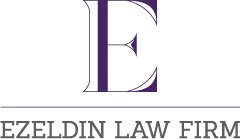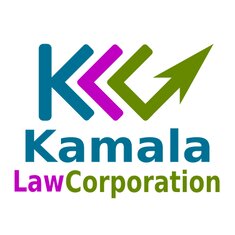Best Employer Lawyers in Illinois
Share your needs with us, get contacted by law firms.
Free. Takes 2 min.
Or refine your search by selecting a city:
List of the best lawyers in Illinois, United States
About Employer Law in Illinois, United States
Employer law in Illinois refers to the body of state and federal rules that govern the relationship between employers and employees. It covers the rights and responsibilities of employers in the workplace, including areas such as wage laws, discrimination, hiring and firing practices, workplace safety, benefits, and more. Illinois combines federal employment regulations, like those from the Equal Employment Opportunity Commission (EEOC) and Department of Labor, with its own state-specific statutes to protect both employers and employees. Understanding employer law is essential for any business operating in Illinois to ensure compliance and avoid legal disputes.
Why You May Need a Lawyer
Navigating employer law can be challenging due to the complexity and frequent updates to both state and federal regulations. You may need legal help as an employer in Illinois in several situations, such as:
- Drafting or reviewing employment contracts or employee handbooks
- Defending against claims of workplace discrimination or harassment
- Addressing wage and hour disputes, including overtime or minimum wage claims
- Handling employee terminations, layoffs, or disciplinary actions
- Ensuring compliance with health and safety regulations
- Responding to labor union issues or collective bargaining matters
- Navigating benefits, leave policies, and unemployment claims
- Managing business restructuring, mergers, or acquisitions with workforce changes
A legal professional can provide advice specific to your situation, help prevent costly mistakes, and represent your interests should a legal dispute arise.
Local Laws Overview
Illinois has enacted several state-level laws directly impacting employers. Key aspects to be aware of include:
- Illinois Human Rights Act: Prohibits discrimination in employment based on race, color, religion, sex, national origin, age, disability, marital status, and several other protected classes.
- Wage Laws: The Illinois Minimum Wage is higher than the federal minimum. There are specific rules about overtime, tipped employees, and wage payment notice requirements.
- One Day Rest in Seven Act: Requires employers to provide employees with at least one day of rest in every calendar week.
- Paid Leave: Illinois requires certain employers to provide paid leave for various reasons, including sick leave and the new Paid Leave for All Workers Act effective in 2024.
- Workplace Safety: The Illinois Occupational Safety and Health Act and related regulations require safe working conditions and reporting of workplace injuries.
- Employee Privacy: Restrictions on background checks, drug testing, and the use of social media information in employment decisions.
- Employment Contracts and Restrictive Covenants: Rules about non-compete and non-solicitation agreements, especially recent restrictions for lower wage workers.
Illinois also has robust whistleblower protections, family and medical leave laws, and detailed regulations governing the termination process and unemployment insurance.
Frequently Asked Questions
What is the current minimum wage in Illinois?
As of 2024, the statewide minimum wage is 14 dollars per hour, but rates may be higher in cities like Chicago. Be sure to verify if your locality has a higher rate.
Can I terminate an employee at will in Illinois?
Illinois is an at-will employment state, meaning an employer can terminate an employee for any reason that is not illegal, such as discrimination or retaliation. However, always document reasons for termination to avoid legal issues.
What labor posters do I need to display in my workplace?
Employers must display state and federal labor law posters covering topics such as minimum wage, workers' compensation, unemployment insurance, and anti-discrimination laws.
Are employers required to provide paid sick leave?
Illinois requires certain employers to offer paid sick leave and, starting in 2024, most employees will accrue paid leave under the Paid Leave for All Workers Act.
What protections exist against workplace discrimination?
The Illinois Human Rights Act, along with federal laws, prohibits discrimination based on several protected categories. Employers must provide a workplace free from discrimination and harassment.
How do I handle overtime pay?
Non-exempt employees must be paid 1.5 times their regular pay for hours worked over 40 in a workweek. Exemptions are strictly defined; misclassification can lead to penalties.
Are background checks permitted during hiring?
Illinois allows background checks, but employers must follow specific procedures, provide disclosures, and cannot use arrest records or expunged records in employment decisions.
What is required for employee termination?
While at-will employment applies, terminations must not violate anti-discrimination laws or retaliate for protected activity. Final compensation must be provided promptly upon termination.
Do I need to provide breaks to employees?
Illinois law mandates a 20-minute meal break for employees working 7.5 continuous hours. Additional rules apply to minors and certain industries.
How can I protect my business with employment contracts?
Having clear employment contracts and policies, especially about confidentiality, non-compete, and non-solicitation, can protect your business. Ensure agreements comply with Illinois statutes and recent legal updates.
Additional Resources
- Illinois Department of Labor (IDOL): Regulates wage laws, workplace safety, paid leave, and more.
- Illinois Human Rights Commission: Handles workplace discrimination and harassment complaints.
- Illinois Attorney General’s Workplace Rights Bureau: Offers information and advocacy for workplace rights.
- U.S. Equal Employment Opportunity Commission (EEOC): Enforces federal laws related to employment discrimination.
- Illinois Chamber of Commerce: Provides employer resources and legal updates for business owners.
- Local bar associations: Offer lawyer referral services and free legal clinics.
Next Steps
If you need legal assistance regarding employer law in Illinois:
- Evaluate your situation and gather relevant workplace documents or policies
- Determine the exact legal issue or area where you require guidance, such as hiring, firing, wage disputes, or discrimination concerns
- Reach out to a qualified employment law attorney licensed in Illinois; you may use referral services from local bar associations or the Illinois State Bar Association
- Consider contacting state agencies like the Illinois Department of Labor or the Illinois Human Rights Commission for general information or to file a complaint
- Maintain detailed records and communications, which can be crucial for any legal consultation
- Stay proactive in updating workplace policies and practices to align with current state and federal laws
Legal compliance is essential for operating a business and maintaining a safe, fair workplace. Professional legal help can save time, money, and prevent future legal disputes.
Lawzana helps you find the best lawyers and law firms in Illinois through a curated and pre-screened list of qualified legal professionals. Our platform offers rankings and detailed profiles of attorneys and law firms, allowing you to compare based on practice areas, including Employer, experience, and client feedback.
Each profile includes a description of the firm's areas of practice, client reviews, team members and partners, year of establishment, spoken languages, office locations, contact information, social media presence, and any published articles or resources. Most firms on our platform speak English and are experienced in both local and international legal matters.
Get a quote from top-rated law firms in Illinois, United States — quickly, securely, and without unnecessary hassle.
Disclaimer:
The information provided on this page is for general informational purposes only and does not constitute legal advice. While we strive to ensure the accuracy and relevance of the content, legal information may change over time, and interpretations of the law can vary. You should always consult with a qualified legal professional for advice specific to your situation.
We disclaim all liability for actions taken or not taken based on the content of this page. If you believe any information is incorrect or outdated, please contact us, and we will review and update it where appropriate.
Browse employer law firms by city in Illinois
Refine your search by selecting a city.













